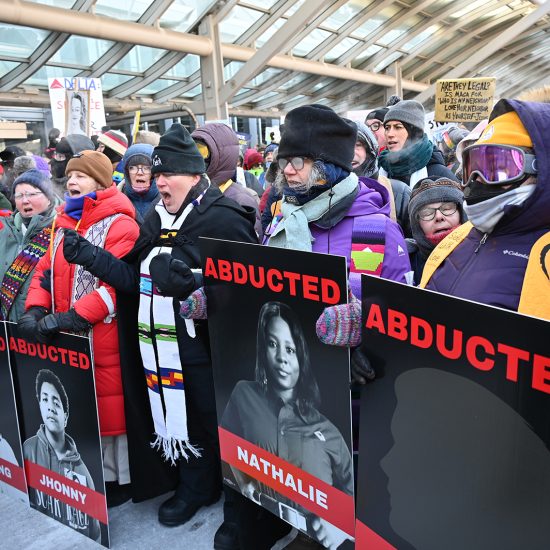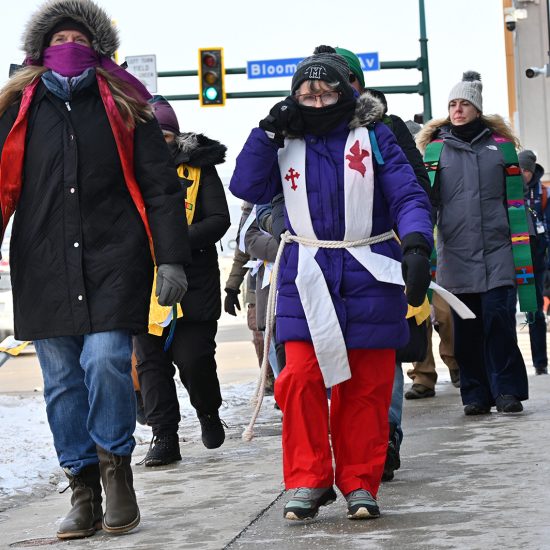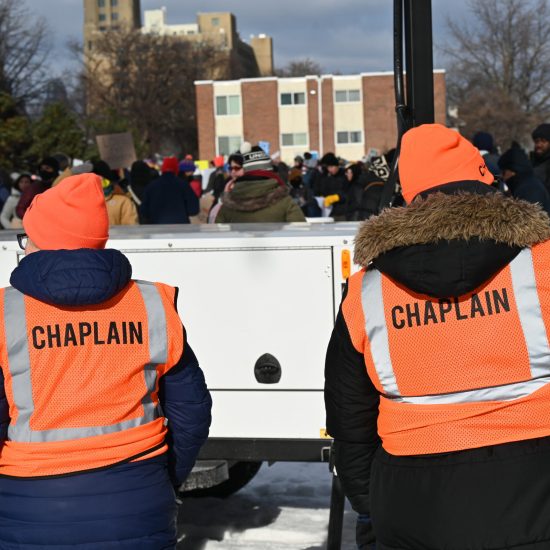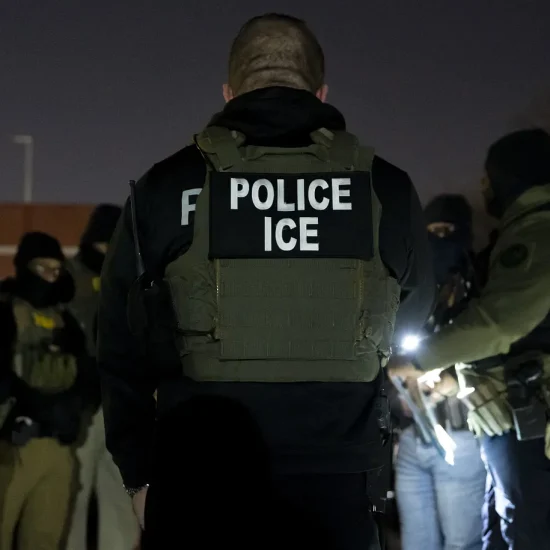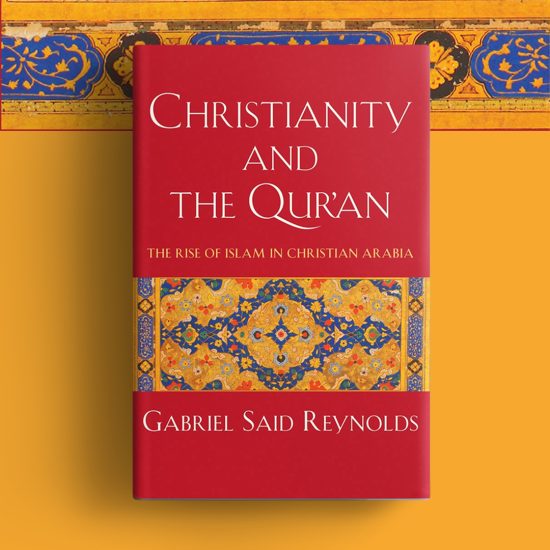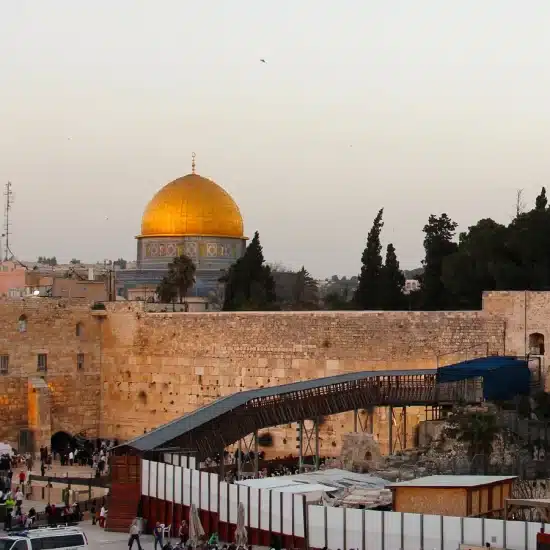Religious and ethnic diversity continues to increase in the United States. Some faith leaders recognize that dialogue among diverse groups may deepen understanding. Greater understanding then leads to cooperative efforts to make changes in society.
“As people of faith we share a call to meeting real human needs,” noted Scott Stearman, pastor of Kirkwood Baptist Church in Kirkwood, Mo.
Catalyst for change
Meeting needs by affecting systemic change is the heart of interfaith dialogue efforts for some groups. Interfaith advocacy group Missouri Faith Voices believes that faith can bridge differences and be the catalyst for change.

Raith leaders from across Jefferson City, Mo., through Faith Voices Jefferson City, an affiliate of Missouri Faith Voices, focus on community needs to bridge differences and work together to find ways to attack social justice issues.
|
Major crises also can bring diverse groups together. The shooting of Michael Brown in Ferguson, Mo., has significantly shifted Missouri Faith Voices’ approach, according to one leader.
“Everything has shifted from a conversation related to creating a faith agenda that considers public policy to a compelling critique of underlying issues that divide us and influence the way we practice our faith,” Carl Kenney II explained.
“We faith leaders in Missouri are now grappling to find a way to bring positive voice to these types of dialogues,” the pastor of Bethel Church in Columbia added. A columnist and adjunct professor at the University of Missouri-Columbia, Kenney also influences his congregation and other believers through his blog, Rev-elution.
American Baptists have been among groups at the forefront of interfaith dialogue. American Baptist Churches USA hosted three events following an open letter from Muslim leaders and a reply from the Baptist World Alliance in 2007.
Conversations between Baptists and Muslims were held at Virginia Union University and at the American Baptist Seminary of the West. The last one took place at Central Baptist Theological Seminary in 2013.
CBTS President Molly Marshall pointed to greater understanding among faith traditions. Dialogue has led to Central partnerships with Jews and Muslims in the Kansas City metropolitan area.
“Our faculty teaches with respect for the lived religion of others,” Marshall explained. “Our partnerships with Jewish and Muslim scholars have helped us understand the faithful practices of these non-Christian friends.”
Break down barriers
Stearman believes discussion among faith groups helps break down barriers. He concentrates on working across racial lines in Kirkwood, which is racially mixed rather than diverse in faith traditions.
In addition to his work in his neighborhood, he serves the greater St. Louis area through Interfaith Alliance of St. Louis and Metropolitan Congregations United, the primary clergy group driving the faith response in Ferguson.
Leaders believe interfaith dialogue will have long-term benefits among individuals and society as a whole.
“Interfaith dialogue promotes mutual respect, and this can foster the kind of sensitivity that shapes public policy in terms of religious freedom,” Marshall explained.
Kenney believes dialogue may be a possible means to help overcome what he sees as a “culture of apathy.”
“[F]aith leadership has taken the easy path of remaining focused on their local congregation’s interest,” he said. “We are witnessing extreme hostility regarding the longstanding absence of leadership from the faith community and it will take time to establish trust among those standing on opposite ends of these issues.”
Faith leaders must continue to dialogue and work together to make sure that ethics remain part of the fabric of each community.
“We have hard work to do, but if we fail to address this, those lingering outside the theological claims of our faith traditions will be left devoid of an ethic that brings significant meaning related to these issues,” Kenney added.
Improve communities
While talking with one another leads to greater understanding, many faith leaders push for greater involvement to improve communities, locally and statewide.
Central’s president pointed to the work of the interfaith clergy council in Kansas City. The organization hosted an interfaith civil rights tour to build understanding between Jewish leaders and African-American Christians.
It also “has fostered conversations about public education, targeted religious minorities and misunderstanding based on false allegations about belief structures,” Marshall explained.
Those who participate in Missouri Faith Voices have worked together to promote changes in public policy at the state level. They have organized voter referendums and collected signatures and pushed for change for Medicaid expansion, limits to payday loans and expansion of voting rights.
“We brought Rev. William Barber, founder of North Carolina’s Moral Monday movement, to Columbia to help us process through ways to create a consistent and aggressive response to extreme politics in Missouri,” Kenney said.
The Greater Kansas City Interfaith Council offers a number of programs for “diversity and fellowship,” according to its website. It produces a quarterly publication for its members, sponsors book clubs, provides support for chaplains, and has a youth alliance and a speakers’ bureau.
The council also gets involved in community action, recently sponsoring a meeting of the Heartland Coalition to Prevent Gun Violence.
Leaders of faith traditions work together for specific projects, as well. For 25 years, Stearman has been a board member of Doorways, an interfaith housing ministry for HIV-positive individuals.
Religious leaders in many large cities have organized — some, like that in Kansas City, provide several outlets for fellowship and cooperation, while others have limited operations.
Interfaith of Topeka in Kansas, for example, hosts monthly faith share meetings.
While faith leaders work together to affect change, they also hope to help change attitudes.
“Part of my job is…to try to remind folks in this day of terrorism that Islam is as diverse as Christianity…and to be aware that labels can be misleading,” Stearman said.
Talking and working together can change communities, he added. “The theme is that we can do so much more together than apart.”

